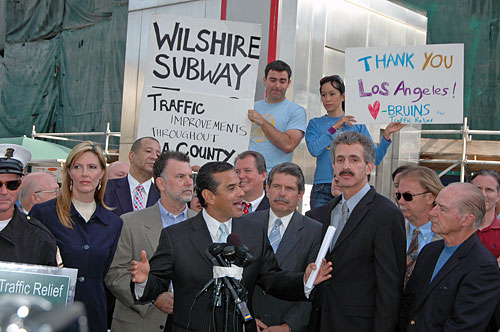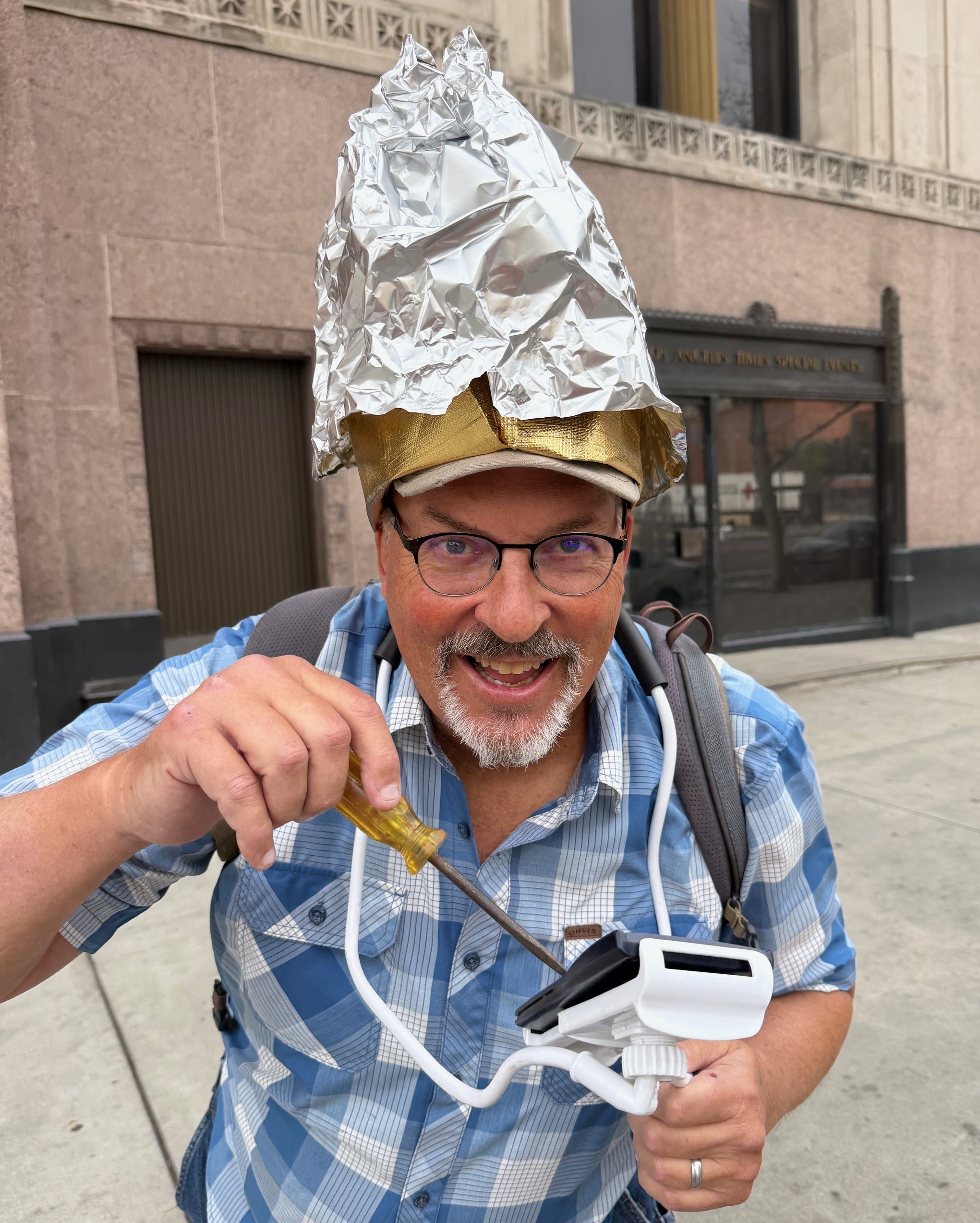
Yesterday was the first day that state legislators could introduce new legislation and Assemblyman Mike Feuer wasted no time introducing a pair of bills designed to speed up Los Angeles' rail expansion plans. In 2008, Feuer introduced and tirelessly lobbied for legislation that allowed the Measure R transit tax to be placed on the ballot.
Feuer's first transit speed-up bill, A.B. 1446, would allow L.A. County voters to vote on an extension to the Measure R transit tax which is slated to expire in 27 years. This extension would enable Metro to bond against future Measure R proceeds and build those transit projects much sooner than originally contemplated, without relying on federal or state funding.
"If you like Measure R, you're going to love Measure R plus," says Move L.A. president Denny Zane in a phone interview. Move L.A. led a coalition of transit backers, unions and other groups to support the Measure R transit sales tax in 2008 and rail planning acceleration for the last three and half years.
In 2008, rail expansion advocates believed they had the perfect storm at the voting booth to earn the two-thirds support needed to pass a tax increase. The same two-thirds super majority would be needed to extend the tax this year, but it remains to be seen if the same perfect storm exists. In addition to the uncertainty concerning whether or note President Obama will turn out the same number of younger and transit-savvy voters that Senator Obama did is one factor. The increasing unpopularity of High Speed Rail, which could also be on the ballot in some form, could also work against what one transit advocate termed "another train proposal."
But Zane remains optimistic. "Tax extensions generally fare better at the ballot box than tax increases," he notes. "In the past couple of years similar extensions have passed in Orange County, Riverside County and San Bernadino County and those areas aren't as transit friendly as Los Angeles County."
There's a lot that has to happen before the tax can reach the ballot. First, Feuer's legislation has to be approved by both the Assembly and Senate in Sacramento and receive the backing of the unpredictable Governor Jerry Brown. Then an extension proposal has to be approved by the Metro Board of Directors. Only then will voters get a chance to weigh in themselves on whether they want to pay a half cent sales tax for transit for the next 27 years or sometime longer.
And all of this says nothing of 30/10 or America Fast Forward, the Mayor's plan to change federal funding formulas to benefit areas that can fund portions of their own transit expansion. The proposal has been popular with politicians, but Washington seems unable to move forward on any real transportation funding proposal.
In the meantime, Feuer and transit backers have proposed a heck of a "Plan B." Last Summer, Villaraigosa laughed off a question about whether or not there was a backup plan if 30/10 and he laughed, "there's always a Plan B, but I'm not going to tell you what it is now." Well, now we know.
Feuer's second piece of legislation, A.B. 1441 would take the benefit from Governor Brown's legislation that allows for expedited legal challenges to environmental reviews for large projects and applies them to transit projects as well.
Under CEQA, environmental impacts of development projects must be identified and mitigated. The Act also guarantees the public an opportunity to review and comment on the environmental impacts of a project and to participate meaningfully in the development of mitigation measures for potentially significant environmental impacts. AB 1441 would maintain these protections while reducing the timeline for judicial review, thus allowing more environmentally friendly projects to be built more quickly.
“This bill would create thousands of desperately-needed jobs, and give commuters and residents environmentally sound transit options as alternatives to sitting in stopped traffic,” said Feuer. “We’ve got to reduce the congestion that chokes our metropolitan areas,” said Feuer.
A.B.1441 is probably a surprise to Senator Alex Padilla who claimed that the legislation he introduced on Brown's behalf that allowed for expediated legal challenges for large projects such as stadiums also applied to transit projects. Streetsblog readers argued that Padilla didn't understand his own legislation. Apparently, those readers were right.






